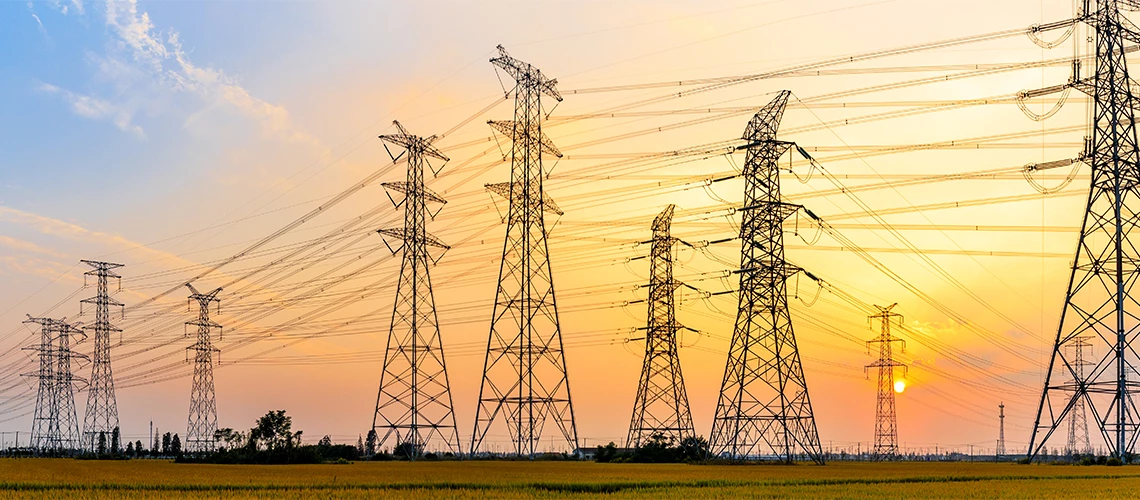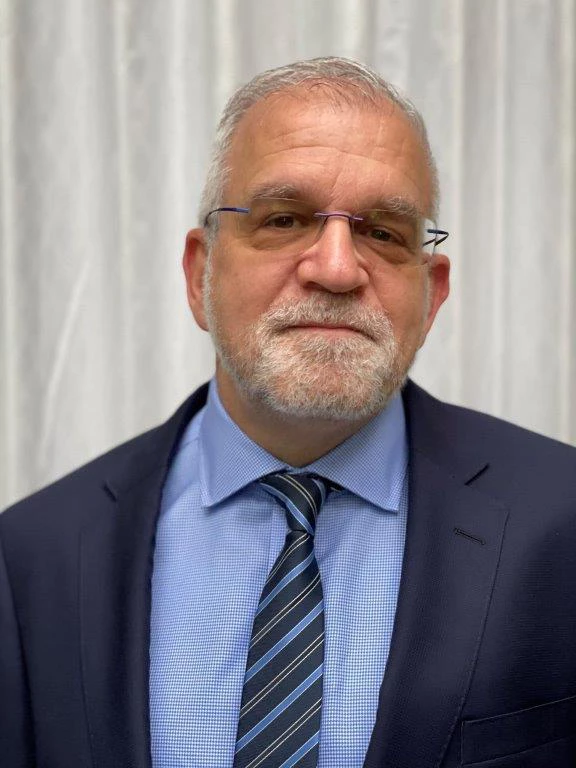 high-voltage power lines at sunset. Copyright: Shutterstock.
high-voltage power lines at sunset. Copyright: Shutterstock.
Multi-country World Bank program to boost affordable, secure, and sustainable energy
The recent energy crisis in Europe and Central Asia (ECA) has highlighted the region’s overreliance on fossil fuels and exposed vulnerabilities to supply shortages and price shocks. As part of its response, the World Bank has launched a new $2 billion program to support the region’s ambitious targets to accelerate the scaling up of renewable energy.
The just-launched 10-year Europe and Central Asia Renewable Energy Scale-up (ECARES) program will enhance energy security, make energy more affordable for households, and help countries achieve their commitments under the Paris Agreement. The program will support the deployment of 15 GW of renewable energy while also enabling the regulatory environment, institutions and business models that can continue to scale renewable energy well into the next decade.
Europe and Central Asia’s transition to clean energy is integral to the region’s economic future, energy affordability and security, and global climate commitments. The energy sector generates more than half of the region’s greenhouse gas emissions, including electricity and space heating. While countries have made some progress in their clean energy transition, fossil fuels (natural gas, oil, and coal) still make up more than 80 percent of the region’s energy mix.
The ECARES program will support the acceleration of renewable energy generation by leveraging the three pillars that address the key bottlenecks shared by ECA countries. Although countries have different power sector structures and stages of renewable energy development, our recent market sounding concluded that all ECA countries would benefit from addressing the following three issues:
(i) an enabling regulatory environment;
(ii) the modernization and digitization of their power grid to enable renewable energy integration;
(iii) innovative financing and risk mitigation instruments to bring in the scale of private capital required.
Moreover, the clean-energy transition will support stronger long-term economic growth in line with global efforts toward net zero emissions. Our recent modeling showed that a decisive move in this direction could boost the region’s renewable energy employment from about 200,000 people today to over 900,000 people by 2040.
Recognizing the need for investments and strong partnerships, ECARES will establish a regional knowledge platform to enable countries to learn best practices from one another, replicate success, and build the momentum needed to attract the required capital and technical support. Countries in the program will benefit from the World Bank’s convening power to bring together governments, international financial institutions, commercial banks, and private sector partners to deepen market integration.
Designed as a One World Bank program, ECARES reflects the Bank’s evolution and determination to deliver solutions and impact at scale. ECARES will catalyze opportunities for concessional co-financing from other partners by reducing risks and mobilizing up to $6 billion in private investment in clean energy, while also leveraging carbon markets and climate finance.
Türkiye is the first country to pilot a project within the ECARES program to support its objective to double renewable energy capacity by adding 60 GW of solar and wind by 2035. The first phase provides $657 million financing facility to accelerate the market creation for distributed solar energy.
Eight countries across the region have expressed interest to join the ECARES program to date; other countries are encouraged to participate. We are now beginning a seven-year commitment period, during which more projects are expected to be added to the program, over the 10-year implementation plan.
We are also developing a complementary regional energy-efficiency initiative to run alongside the ECARES program. Both efforts are designed to mobilize large-scale resources for the clean energy transition by building partnerships and promoting economies of scale. The programs are part of the World Bank’s vision to create a world free of poverty on a livable planet.
The ECARES program will build on multiple opportunities to scale up renewable energy. The dramatic decline in the cost of widely available renewable technologies, such as solar panels, has opened the door to innovative private sector solutions. At the same time, the digitization of transmission and distribution grids is transforming energy planning, and the region is taking steps toward building an integrated electricity market. In addition, the renewable sources of energy (solar, wind, hydro, and bioenergy including biomass and biofuels) that are replacing coal are already cost-effective in most ECA countries or will become so in the next decade.

Truly sustainable energy security cannot be achieved without renewable energy. Although only nine countries in the region have made commitments to achieve carbon neutrality targets by 2050 to 2060 through their Nationally Determined Contributions, we are encouraged that 18 countries have signed on to the COP 28 pledge to triple renewable energy and double energy efficiency by 2030.
Achieving carbon neutrality requires ambition, targeted measures, investments, and extensive collaboration. Recognizing this, the ECARES program is supporting countries as they work together to transform the energy landscape in Europe and Central Asia and build a brighter future.





Join the Conversation